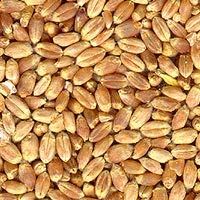 In response to the Supreme Court order on rotting foodgrain, the Centre has decided to distribute wheat and rice to poor families at Rs 2 and Rs 3 per kilo, respectively.
In response to the Supreme Court order on rotting foodgrain, the Centre has decided to distribute wheat and rice to poor families at Rs 2 and Rs 3 per kilo, respectively.
The Ministry of Food and Public Distribution System is also expected to brief the apex court on the steps taken to address the problem.
In a letter to all states, the Centre has urged the state PDS machinery to distribute 1.71 million tonnes of rice and 0.79 million tonnes of wheat before March 2011.
"Wheat offtake has started. Besides, these are not rotting foodgrain from the godowns. Every grain is laboratory tested and considered fit for human consumption," said officials.
At present, 65.2 million families are registered under the below poverty line category and each are eligible for 35 kg of foodgrain a month. Rice is usually distributed to BPL families at `5.65 a kg, while wheat is allotted at `4.15 a kg.
The ministry is expected to brief the Supreme Court of all the steps taken to distribute surplus foodgrain among BPL families by the end of this week, when the court hears suggestions of 18 states on the computerisation pattern of the targeted public distribution system.
To store foodgrain, the ministry is hiring private godowns under a new scheme apart from using the government storage facilities available in states.
Under the scheme -- the Ten Year Guarantee Scheme the ministry will hire private godowns for a 10-year period and take an undertaking from the private operator that they would set aside space for a pre-approved capacity at the warehouse for foodgrain under PDS.
Whenever the government needs, the warehouse owner is liable to return the grain in good condition or make up for the loss, if any. Private godown operators, on the other hand, get an assurance of storing grains for 10 years.
In its reply filed in the apex court earlier as a respondent, the ministry had expressed its view that free distribution of foodgrain will be a huge financial burden as it will overshoot targets of food subsidy.
"Food grain is already distributed much below the minimum support price which is a huge gap to be filled by food subsidy."
Responding to the suggestion of the Supreme Court for procuring grains in line with available storage capacity, the ministry is of the view that for essential commodities distributed under PDS -- wheat, rice and sugar -- government procurement is an incentive to the farmers to increase acreage and production for the particular crop.
If government stops procurement, these farmers will shift to other cash crops and foodgrain production will be hit.
A task force has already been formed for the computerisation of the public distribution system and working out a per unit basis for distribution under the system.
"At present, under PDS we distribute a ceratin quantity for every family on a 'per family per month' basis irrespective of the number of family members.
However the new system will ensure distribution will be per unit (per head) and these units will be decided based on the number of family members. Ideally, every month 5-6 kg of a certain type of foodgrain will be distributed per unit at a subsidised rate," explained an official.![]()






